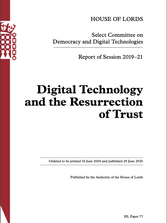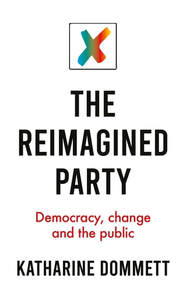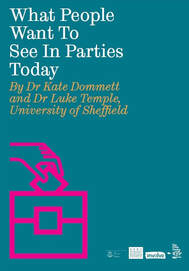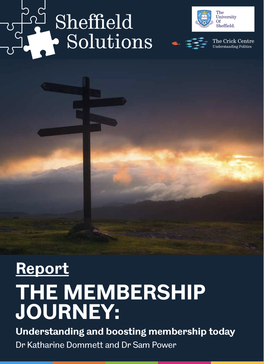My research looks at the relationship between citizens and the state in contemporary democracies, particularly focusing on digital technology. My interests cover the following areas:
- Data-driven campaigning
- Digital technology
- Political parties
- Political advertising and targeting
- Political organisation and membership
- Public perceptions
- Transparency and regulation
Current research:
DIGITAL CAMPAIGNING, ELECTIONS AND DATA

My current research focuses on digital campaigning, elections and the role of data in democracies. I have recently been awarded funding from the Norface 'Democratic Governance in a Turbulent Age' scheme to conduct a collaborative project entitled: 'Data-driven campaigns: intended and unintended consequences for democracy [DATADRIVEN]’.
I have previously conducted a number of projects in this area, including: interviews with political parties, digital campaigners, digital content providers and consultants; academic workshops on the challenges of studying political campaigning; and experimental analyses looking at online transparency. This work has been funded by the ESRC and British Academy.
Some of the questions I am currently exploring are:
How extensively are digital campaigning tools such as micro-targeting and data-driven campaigning being used?
What are the democratic implications of different digital campaigning affordances?
How are organisations facilitating the adoption of digital tools?
Who are the actors that support digital campaigns?
What do the public think about digital campaigning? And how comfortable are people with the use of their data for political ends?
How effective are current regulations on digital campaigns?
How can academics and practitioners study digital campaigning practices?
I am currently writing on these themes and am particularly interested to hear from other individuals and orgasniations working in this area.
A recent video of a talk I gave at the University of Westminster on micro-targeting is available here.
A newly published report entitled 'The Challenges of Studying Digital Campaigning' can be found here.
An interview I conducted with Privacy International about micro targeting can be found here.
As part of this work, I have recently worked as Special Advisor to the House of Lords Committee on Democracy and Digital Technologies. For this position I have reviewed recent Parliamentary inquiries looking at digital technology, and have produced a database of recommendations in this area. If you'd like access to this resource, then please do get in touch. The final report from the Committee can be found here.
Online Political Advertising

I have recently been awarded a new Research Project Grant from the Leverhulme Trust to work with Dr Tom Stafford and Dr Nikos Aletras on a project entitled 'Understanding Online Political Advertising: Perceptions, Uses and Regulation'. This project will formally begin in January 2021.
The project will explore the use and impact of online political advertising. We will use interviews, experimental surveys and social media analysis of adverts to explore what is seen as legitimate practice, how effects are understood, and to test the link between perceptions, reported use and actual practice. We hope that this work will inform the live debate about the regulation of online political advertising.
The project will ask the following questions:
Micro-level:
The project will explore the use and impact of online political advertising. We will use interviews, experimental surveys and social media analysis of adverts to explore what is seen as legitimate practice, how effects are understood, and to test the link between perceptions, reported use and actual practice. We hope that this work will inform the live debate about the regulation of online political advertising.
The project will ask the following questions:
Micro-level:
- How is the impact of online political advertising perceived by the public, practitioners and policy makers?
- Are there consistent perceptions of legitimate advertising amongst the public, advertisers and regulators?
- Is there a congruence between the claimed strategies for online political advertising and the actual content we see in advertising practice?
- Do different kinds of practitioners use different kinds of advertising strategy?
- Is there an online “third person effect” around the perceived impact of advertising?
- What form of regulation would support the legitimate use of online political advertising?
- Does online political advertising exhibit illegitimate practices that threaten established democratic norms?
Past Projects:
WHAT DO WE WANT FROM POLITICAL PARTIES?
WHAT DO WE WANT FROM POLITICAL PARTIES?
|
Between 2016-2018 I conducted research project funded by the ESRC Future Leaders scheme. This project explored public perceptions of, and desires for, political parties in the UK. Conducting a national representative survey, deliberative workshops and using experimental research I gathered a raft of new data on public attitudes towards political parties. I find that far from rejecting parties, people have nuanced desires for how they would like parties to behave. You can learn more about this research in the following outputs: The Reimgained Party - Published in June 2020, available from MUP here or Waterstones here. Public report What People Want to See in Parties, available here. |
THE CHALLENGE OF PARTY MEMBERSHIP
In a knowledge-exchange faculty funded project, Dr Sam Power and I looked at the issue of member engagement. With recent surges of party membership in the UK this project explored the state of the field in party membership, asking why members are important, how they can be engaged, and what affects people's decisions to join. This project worked specifically with the Green Party of England and Wales, but also has links to Amnesty International, the Women's Equality Party and More United.The abstract for this project is below:
Party membership has historically been a key part of the democratic system. Through their membership, parties retain links to citizens, and gain a resource for campaigning and communication. Previous decades have seen significant declines in the membership of all UK political parties, raising questions about the legitimacy of these organisations. But, more recently, parties across the board have experienced surges in membership levels and public engagement (via supporters’ networks). This raises interesting questions about what membership means today, what encourages people to engage, and what members can/should be expected to do. The answers to these questions could have significant implications for liberal democracy in the 21st century.
This project seeks to intervene in the context of these recent changes to work with parties across the spectrum on the issue of member engagement. It will explore, firstly, how members are currently engaged and how they would ideally like to be engaged and, secondly, how parties themselves would like their members to participate. Drawing together experts on party membership the project will develop and test member engagement strategies to explore their effectiveness.
If you're interested in any of these projects then please get in touch.
Party membership has historically been a key part of the democratic system. Through their membership, parties retain links to citizens, and gain a resource for campaigning and communication. Previous decades have seen significant declines in the membership of all UK political parties, raising questions about the legitimacy of these organisations. But, more recently, parties across the board have experienced surges in membership levels and public engagement (via supporters’ networks). This raises interesting questions about what membership means today, what encourages people to engage, and what members can/should be expected to do. The answers to these questions could have significant implications for liberal democracy in the 21st century.
This project seeks to intervene in the context of these recent changes to work with parties across the spectrum on the issue of member engagement. It will explore, firstly, how members are currently engaged and how they would ideally like to be engaged and, secondly, how parties themselves would like their members to participate. Drawing together experts on party membership the project will develop and test member engagement strategies to explore their effectiveness.
If you're interested in any of these projects then please get in touch.
| |||||||


